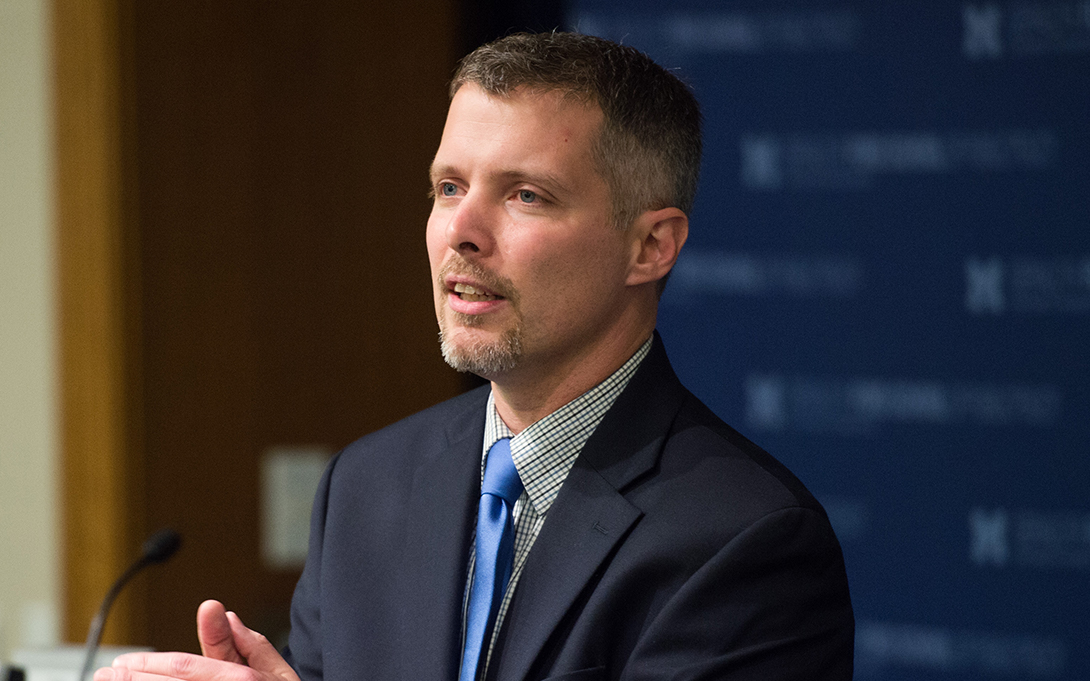
Emergency federal dollars given to the unemployed during the COVID-19 pandemic bolstered health-care spending as jobless rates skyrocketed, a new University of Michigan study found.
But the negative consequences of unemployment and moderating effects of federal income support were greatest in states that did not adopt Medicaid expansion.
The study, published in the current issue of Health Services Research, contributes to previous findings that federal income support programs can mitigate hardship during economic crises.
Before the Federal Pandemic Unemployment Compensation of $600 weekly was implemented nationwide, health services spending declined by 1 percent for every percentage point increase in the unemployment insurance claims rate, as compared to pre-pandemic levels.
“Yet the reality that a temporary federal program bolstered health care spending during a public health and economic crisis underscores the perils of a fragmented and costly health care system that ties coverage to employment for working-age people and fails to provide universal coverage,” said study co-author Luke Shaefer, director of Poverty Solutions at U-M and the Hermann and Amalie Kohn Professor of Social Justice and Social Policy at the Gerald R. Ford School of Public Policy.
The study targeted a brief period, spanning 31 weeks starting in mid-January 2020, when the pandemic was in its early stages. At that time, the federal government passed many unprecedented spending measures.
Unfortunately for millions of workers, Congress allowed those federal unemployment insurance programs that were studied to expire last month, said lead author Michael Evangelist, a postdoctoral research scientist at Columbia University’s School of Social Work. He conducted the research with others as a U-M doctoral student of social work before going to New York this past summer.
Researchers used data on credit and debit card purchases nationwide to estimate the buffering effects of expanded unemployment insurance benefits on declines in health care-services spending during the pandemic.
Specifically, the spending focused on regular visits to doctors and other health practitioners like dentists and optometrists, as well as ambulance services, visits to hospitals and nursing home costs. The data, however, do not capture insurance premiums or prescription drugs purchased at retail outlets.
For each percentage point increase in the unemployment insurance claims rate, health care spending declined by 1 percent in Medicaid-expansion states and by 2 percent in nonexpansion states. Overall, FPUC payments mitigated half of this negative association, the research indicated.
Researchers also noted that other studies have found that unemployment insurance mitigates the negative health effects of job loss. When benefits are generous, it can lower suicide rates, improve physical activity among the unemployed, and increase health insurance coverage and utilization.
Shaefer, who is also associate dean for research and policy engagement at the Ford School and a professor of social work, and Evangelist also co-authored the study with Pinghui Wu, who works at the Federal Reserve Bank of Boston. She was a postdoctoral research fellow at Poverty Solutions when she did this work.
This story was written by Jared Wadley from Michigan News.
